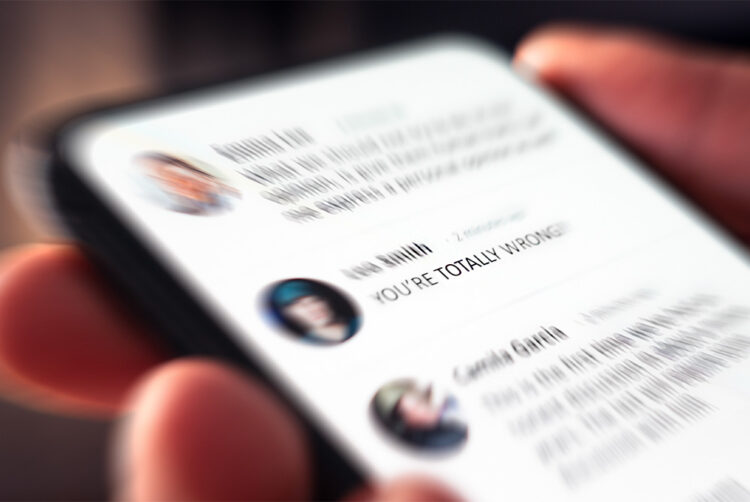Threads: we need a safer space for journalists on social media

Opinion
Online harm against journalists is a real and serious problem. Meta’s Threads must take meaningful steps to prevent repeating the worst parts of Twitter, writes Reach’s online safety editor.
Touted as a positive, safe alternative to Twitter, the overnight success of Threads has made it a serious rival for the attention of journalists, politicians and other public figures who have a love/hate relationship with Elon Musk’s beleaguered platform.
In fact, reading the commentary last week, I was left with the impression that millions of disillusioned Twitter users were fleeing to Threads to start a rosy new life, with Matthew Prince, the CEO of Crowdflare, tweeting (ironically) that the 17-year-old platform was ‘tanking’.
While individuals swarmed to set up shop on Threads, news media accounts followed, with journalists and digital experts keen to explore the opportunity posed by a site based around “friendliness” (according to Meta CEO Mark Zuckerberg).

On the surface, Threads does seem to be a recreation of the halcyon days of early Twitter. People are nice to each other and there’s a general air of new beginnings.
Safety functions are carried across from Instagram, with additional features applied just for Threads. There’s no swearing allowed (unless you turn off the automatic application of an ‘offensive words and phrases’ filter).
And the real test? Well, the free speech grumblers are out in force, complaining that their rights are being challenged by Zuckerberg’s utopian vision.
Unpicking the safety concept
Threads might well be a genuine stab at achieving what much of social media has failed to do before; namely, be a happy place where people spend their time socialising and being kind to one another (I’m not counting Reddit in that sweeping statement).
But (and this is a pretty big but) Instagram is intrinsic to Threads. To be on the platform you have to have an Instagram account. That’s the same Instagram which was the focus of a research study published last year by the Centre for Countering Digital Hate, which found Meta failed to act on 90% of misogynistic and sexually violent direct messages sent to women in the public eye.
While Threads does not have a direct-message facility in its first iteration, how long will that last? And why should we expect its moderators to be any different to those on Instagram in terms of application of community standards?
The wording of ‘friendly’ is too loose to be taken seriously. To really be safe, should it not be including identification verification, a ban on multiple accounts and transparency of user names? Now, that would give the free speech brigade something to talk about.
A stitch in time?
When I joined Twitter in 2013 I merrily tweeted without fear of backlash, trolling or concerns about my online safety. Twitter was a community made up by people I knew and people who were interested in the patch covered by the newspaper I edited. Generally folk were civil and we had a good time.
Nowadays my account is often locked down, my tweets are chosen carefully for fear of reprisal, and I spend a good chunk of my day job helping colleagues who are being abused by other Twitter users.
Online harm against journalists is a real and serious problem and, unfortunately, Twitter has played a significant role as a vehicle for racism, misogyny, harassment, intimidation and more.
So if Threads is like the Twitter of 2013, I find it hard to see how it doesn’t face a similarly unsafe future. Unless real barriers are implemented to stop bots, trolls and malicious users setting up accounts in the first place, the platform is in danger of morphing into Twitter circa 2023.
I asked journalists what they thought of Threads. The most overwhelming message from the dozens of replies I received was that it was ‘early days’. Nobody, bar one, felt ready to jump ship entirely from Twitter, although many said Threads did feel safer. There was a general consensus that audiences on the platform were looking for positive stories, good news and lighter content. So maybe Threads could be a place where lifestyle stories and ‘what’s on’-type stories — both of which had been vulnerable to vilification and ridicule on Twitter — would have a chance to thrive.
Meanwhile, one person described the “Truman Show-vibes” of Threads as “boring”; while another said they would happily take boring in place of “toxic”.
As one journalist put it: “It’s the only platform I’ve not seen with any ‘neggy’ energy on it yet, which is nice. But everyone’s always rather cheery when they first turn up to a party, so we’ll see how long it lasts.”
 Dr Rebecca Whittington is online safety editor at Reach
Dr Rebecca Whittington is online safety editor at Reach



